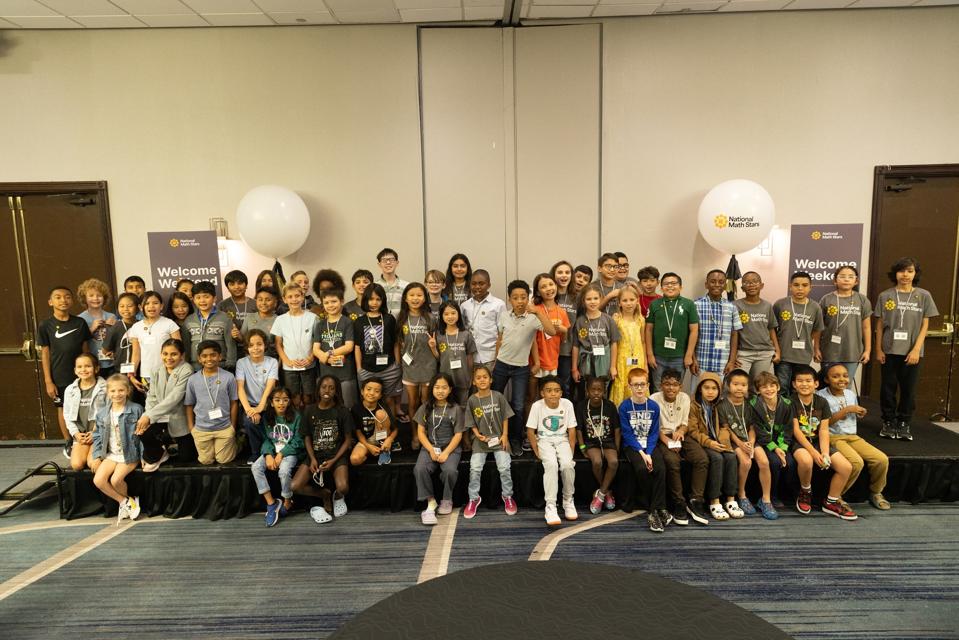I met with Ilana Walder-Biesanz, the leader of National Math Stars, to discuss her innovative program that’s changing the landscape of advanced mathematics education for exceptionally gifted children.
Walder-Biesanz understands these students’ challenges firsthand. Growing up in Portland, Oregon, she was six years ahead in mathematics and required a customized educational path. “My parents had to work a lot with schools, local colleges, and online math options to find ways to keep me challenged,” she explains. This experience shaped her career path, which included engineering, tech product management, and nonprofit consulting before leading National Math Stars.
Her leadership team brings impressive credentials to the organization, including former Teach for America instructors, experienced educators who have served as school principals and superintendents, nonprofit leaders, and experts with deep knowledge of advanced mathematics and STEM enrichment. “We’re a combination of people who have experience in and care deeply about education, and people who have started and built things from the ground up,” Walder-Biesanz noted. “We all have some background in science or mathematics, which helps us understand what these students need.”
National Math Stars was conceived by two philanthropic organizations, Carina Initiatives and Polynera Fund, in 2023. The funds had been supporting advanced math summer camps but noticed participants came from limited geographic and socioeconomic backgrounds. They invited Walder-Biesanz as an entrepreneur-in-residence to create a program that would identify and support mathematically gifted students from across the country, starting early and investing heavily in their development.
National Math Stars isn’t just finding mathematical talent—it’s ensuring it doesn’t get lost. The organization identifies students in second and third grade through school referrals or direct applications from parents (including homeschooling families). Most applicants find National Math Stars through their Awards Program, in which participating schools recognize their highest-achieving math students. They have already shipped more than 10,000 awards this year for students across Texas and the Midwest, partnering with over 2,000 elementary schools.
“Partnering with National Math Stars has offered essential recognition to our top math students while also providing them with valuable academic experiences beyond the classroom. Many of these students and their families were unaware of their full mathematical potential. As a district, we are dedicated to providing resources and opportunities that will help these students reach their highest potential,” shared Ellen Gay, specialist in gifted and talented education at Medina Valley School District, which participates in the Awards Program.
Once admitted, students receive a decade-long commitment of support through high school. Starting with a pilot cohort of 12 students in 2023, National Math Stars has grown to serve 70 students, and will welcome over 100 more this summer.
The program is comprehensive and personalized. Every student takes advanced math courses and participates in weekly small-group mentoring sessions with mathematicians, where they tackle challenging problems that spark their interest. Families receive a STEM budget for enrichment activities ranging from chess lessons to 3D printers, and the program fully funds one summer camp annually for each student.
Family advisors serve as guides, helping parents navigate opportunities and advocate effectively within their schools for appropriate accommodations. They work with families to develop long-term visions for their children’s development, providing continuity and purpose to their mathematical journey. The community aspect is equally important – National Math Stars organizes in-person welcome weekends, virtual events on topics from Pi Day activities to Rubik’s cubing, and local gatherings where children meet peers with similar interests and abilities. These connections help to combat the isolation often experienced by exceptionally gifted students, allowing them to form friendships based on shared passions, and fostering a sense of belonging to a greater community.
The parents of Holden, a Star in the 2024 cohort, shared: “Being part of the National Math Stars program has been an incredible experience for our family. It has given Holden a space where he can truly challenge himself, connect with like-minded peers who share his passion for mathematics, and grow both academically and personally. The mentorship and opportunities have pushed him to think in new ways, and it’s been amazing to watch his confidence and excitement for math grow. As parents, we’ve realized that we are no longer navigating this journey alone.”
National Math Stars aims to ensure parents of extraordinary young mathematicians are not alone – and that knowledge and finances are not a barrier to supporting their children’s abilities. “There’s a large distribution of extraordinary talent in the US,” Walder-Biesanz explained, referencing Opportunity Insights’ “Lost Einsteins” research, which found that while children with high third-grade math scores are more likely to become inventors, family income drastically affects outcomes. “Only a small proportion fully realizes their potential.”
When asked about frequent parental concerns that AI might make STEM careers obsolete, Walder-Biesanz remained confident: “Even with the rise of AI, mathematical problem-solving skills and the soft skills built around that—resilience, clear communication, collaboration—will be super valuable, whatever those careers are.”
When mathematical talent meets opportunity and support, the trajectory changes for both the student and society. National Math Stars is actively seeking school and district partners, especially in remote or lower-income areas within their target states, to refer their most mathematically talented students. They’re also excited to connect with additional funders interested in supporting mathematical talent development.
In a world where exceptional mathematical talent can often feel isolated and misunderstood, programs like National Math Stars stand apart—built by leaders who have walked this path themselves, they combine deep understanding of gifted children’s unique needs with genuine care and intellectual rigor, creating environments where mathematical brilliance isn’t just identified but nurtured and given every opportunity to reach its fullest expression.

